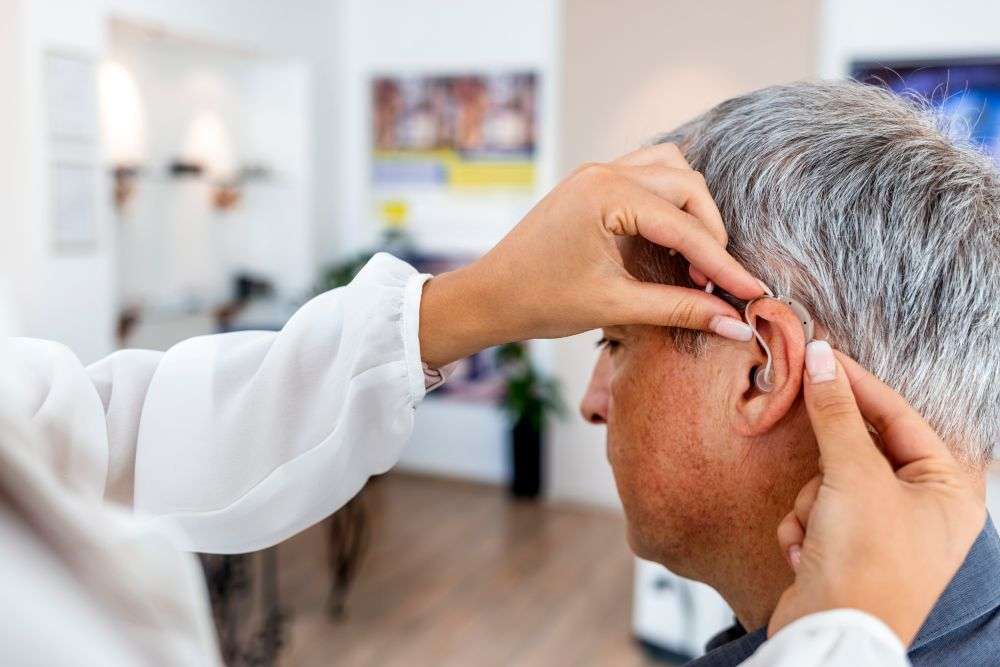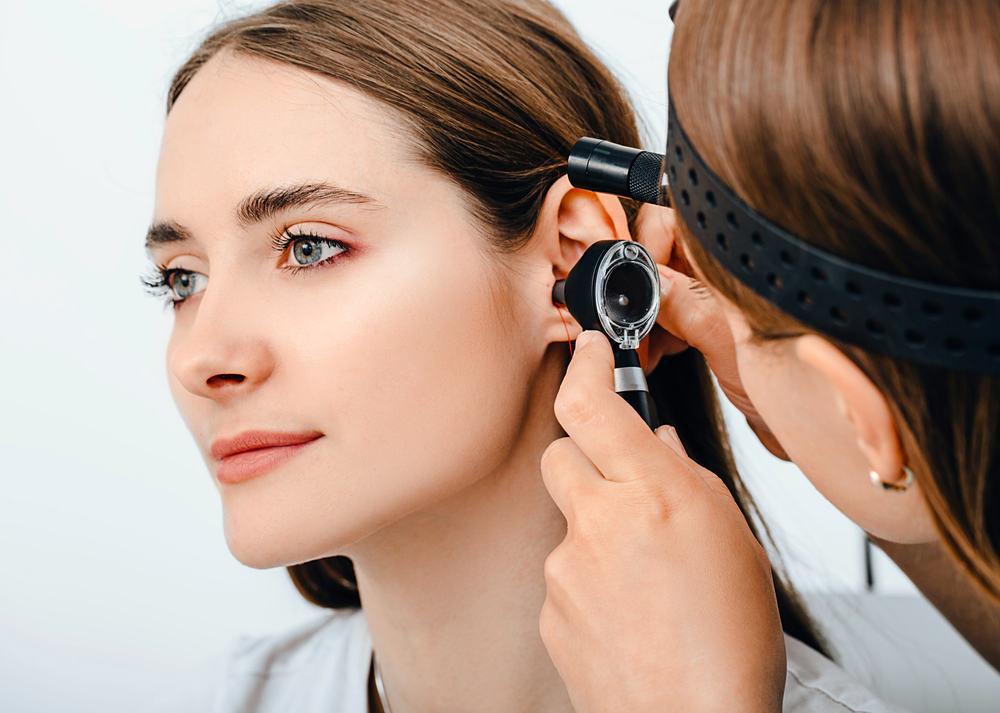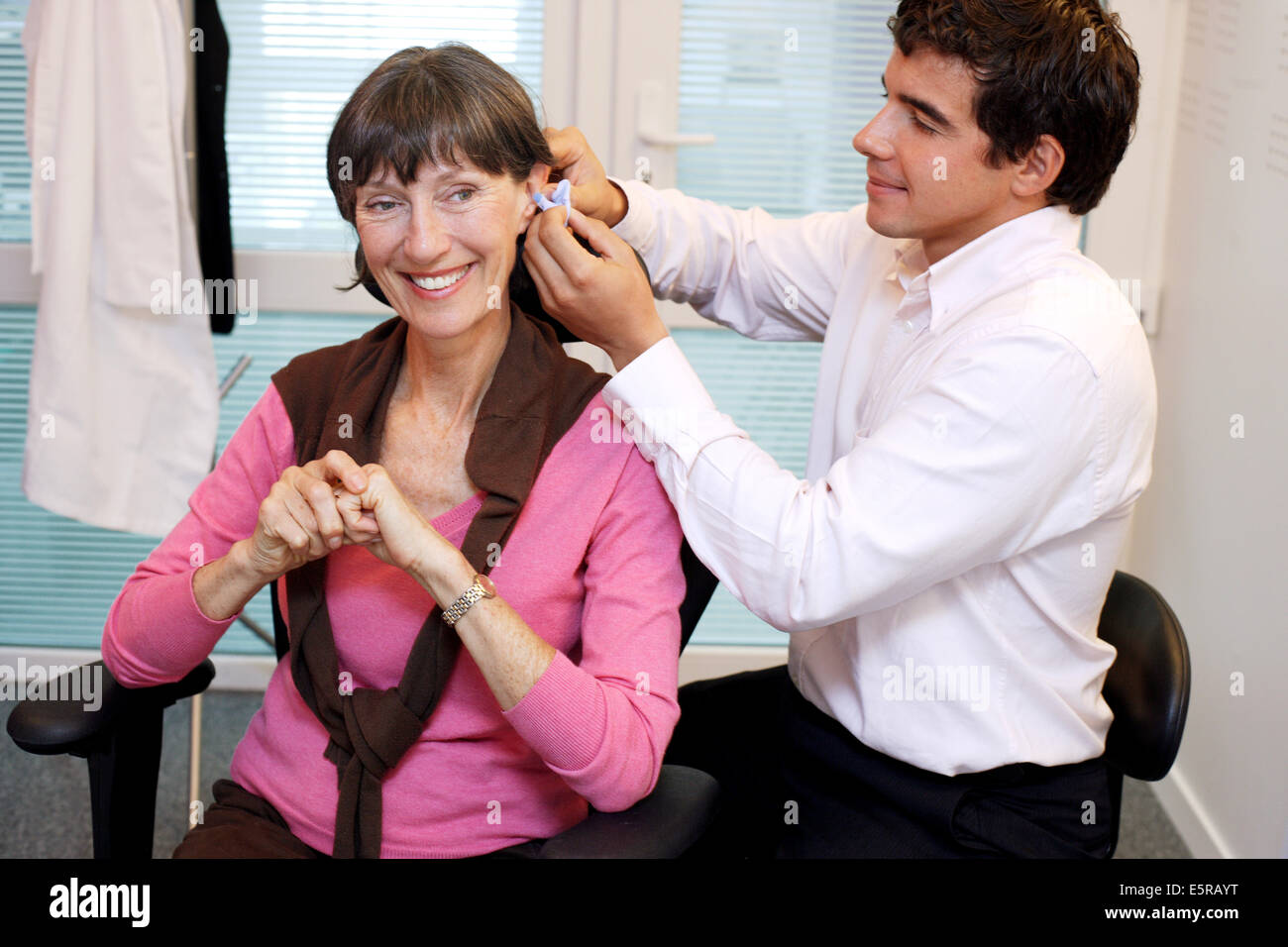Becoming a successful hearing aid specialist in 2024 is an attractive career path due to the increasing demand for hearing healthcare professionals. The U.S. Department of Labor projects an employment growth rate of 8% for this profession by 2029, highlighting the need for skilled individuals who can assist clients with hearing aids and related services. A hearing aid specialist is primarily responsible for evaluating hearing loss and fitting appropriate hearing aids, making it imperative to have a solid foundation in both technical skills and customer care.
To start your journey, obtaining a high school diploma is essential, and further training in hearing aid fitting and dispensing can be immensely beneficial. Completing a comprehensive education program will not only prepare you for the licensing exam but also enhance your competence in providing hearing aid services. In 2024, aspiring specialists should be aware of state-specific licensing requirements, as they can vary significantly. Joining professional organizations and participating in continuous education will help you stay abreast of industry advancements and improve your skills, ultimately leading to a rewarding career in hearing healthcare.

hearing aid specialist
Educational Pathways to Becoming a Hearing Aid Specialist
To pursue a career as a hearing aid specialist, individuals generally need to start with at least a high school diploma. Following this, candidates can enter specialized training programs that focus on the fundamentals of hearing aid fitting and customized dispensing techniques. Programs often include both classroom instruction and hands-on experiences.
Training programs may vary in length but typically require around one to two years to complete. Topics covered include anatomy of the ear, types of hearing aids, and the testing and evaluation of auditory function. After satisfying educational prerequisites, aspiring specialists must then obtain a license to practice, often through passing the necessary exams specific to their state, such as those required in New York for hearing aid specialists.
| Step | Requirement |
|---|---|
| 1 | High School Diploma |
| 2 | Specialized Training Program |
| 3 | Obtain State License |
Additional certifications are also available and can enhance job prospects. According to the U.S. Department of Labor, the demand for hearing aid specialists is expected to grow by at least 8% in the coming years. Specialists can find employment opportunities in various settings, including audiology clinics, hospitals, and retail hearing aid outlets.
Many employers prefer candidates with experience, making internships during training a beneficial step. Overall, the path to becoming a hearing aid specialist requires dedication to education and a commitment to helping improve the quality of life for those with hearing disabilities.

hearing aid specialist
Licensing and Certification Requirements for Hearing Aid Specialists in 2024
To legally practice as a hearing aid specialist in New York, one must fulfill specific licensing and certification requirements. Aspiring specialists should be at least 21 years old and hold a high school diploma or equivalent. Additionally, completion of an approved education program focusing on the fitting and dispensing of hearing aids is essential. This training typically includes core content areas relevant to hearing aids and audiology.
The application process involves submitting a duly filled application form along with the required fees to the New York State Department of State. Upon meeting the educational requirements, applicants need to pass a state-administered written examination to obtain their hearing aid dispenser license. According to the Bureau of Labor Statistics, job prospects for hearing aid specialists are promising, with an expected growth rate of 8% or more by 2029.
In New York, hearing aid specialists are expected to conduct hearing assessments, fit hearing aids, and provide ongoing services, such as adjustments and repairs. They must adhere to state regulations, ensuring that their practice aligns with the latest standards of care. While both audiologists and hearing aid specialists play vital roles in hearing healthcare, they differ in their qualifications; audiologists typically hold advanced degrees, whereas specialists often require less formal education.
It is crucial for aspiring professionals to stay updated on changes to state requirements and to seek continuing education opportunities throughout their careers. Awareness of the hearing aid industry trends and technological advancements also enhances their ability to serve clients effectively.

hearing aid specialist
The Benefits of Working as a Hearing Aid Specialist
Pursuing a career as a hearing aid specialist comes with numerous advantages that can lead to a fulfilling professional life. One significant benefit is job stability; the demand for hearing aid specialists is expected to grow by over 8% by 2029, according to the U.S. Department of Labor. This growth highlights the essential role these professionals play in the healthcare sector.
Another notable advantage is the salary potential. Hearing aid specialists can earn between $17 to $28 per hour, depending on their experience and location. This compensation reflects the specialist’s vital contributions to enhancing the quality of life for individuals with hearing loss.
Moreover, working as a hearing instrument specialist offers immense personal fulfillment. Helping clients regain their hearing not only improves their communication but also fosters connections with family and friends. The role allows professionals to make a real difference in people’s lives, which can be incredibly rewarding.
The job specifications also vary, ranging from selecting and fitting hearing aids to administering hearing tests and interpreting results. These diverse responsibilities ensure that specialists continuously engage with their field, enhancing their skills and knowledge in hearing healthcare.
In addition to personal satisfaction and financial benefits, the training required to become a hearing aid specialist is accessible. Most positions require only a high school diploma or a two-year degree, along with specific training in hearing aid fitting and dispensing. This accessibility broadens the opportunity for many individuals looking to enter the healthcare profession.
Overall, working as a hearing aid specialist offers not just a stable career and good salary, but also the chance to profoundly impact the lives of others.

hearing aid specialist
Essential Skills and Qualities of a Successful Hearing Aid Specialist
A successful hearing aid specialist must possess a combination of technical and interpersonal skills to effectively assist clients with hearing loss. First and foremost, communication skills are vital as these specialists must explain complex information about hearing aid technology and how to use the devices to patients and their families. Being clear and concise helps in building trust and understanding.
Moreover, empathy is a crucial quality in this field. Clients often face emotional challenges due to hearing loss, and a specialist who can empathize with their situation is more likely to provide comforting guidance and support throughout the process. This human connection is essential for patient satisfaction and retention.
In addition to soft skills, a strong foundation in technical proficiency is required. A hearing aid specialist should be adept at selecting, fitting, and adjusting hearing aids to meet individual needs. They must also be capable of conducting and interpreting hearing tests and assessments, ensuring the best possible outcomes for their clients.
Furthermore, a successful hearing aid specialist should remain updated on the latest advancements in hearing technology, as continuous learning is critical in this rapidly evolving field. Being familiar with different brands and types of hearing devices can enhance their ability to offer suitable recommendations for clients.
Finally, organizational skills are important for managing appointments, documentation, and follow-ups effectively, thereby ensuring a smooth workflow. In conclusion, balancing technical skills, empathy, and effective communication contributes significantly to the success of a hearing aid specialist.

hearing aid specialist
Advancements in Hearing Aid Technology and Their Impact on Specialists
Recent advancements in hearing aid technology have significantly influenced the landscape of audiology and hearing aid specialists. These innovations, such as Bluetooth connectivity, artificial intelligence, and advanced sound processing, allow for better adaptability and personalization of hearing aids. As a result, patients can enjoy improved sound quality and clearer communication, which is crucial for individuals with hearing loss.
For hearing aid specialists to remain competitive in this evolving field, they must stay informed about the latest technologies. This includes understanding how to fine-tune devices remotely and utilizing apps that enhance user experience. Additionally, knowledge of different hearing aid models and their functionalities—like the convenience of rechargeable batteries—can set specialists apart in a saturated market.
Incorporating these advancements requires ongoing education and training. Many professionals opt for programs that cover the latest in technology and patient management to maintain their licensure and certification. The U.S. Bureau of Labor Statistics projects that employment for hearing aid specialists will grow by over 8% by 2029, highlighting the need for specialists to adapt continuously to these rapid changes.
Moreover, as telehealth gains prevalence, hearing aid specialists must also be proficient in virtual consultations and remote fittings. These skills are becoming essential as patients seek more flexible appointment options.
In conclusion, the intersection of advanced technology and effective patient interaction defines the future of hearing aid specialists. By embracing these advancements, specialists can ensure they provide the best possible care, thereby enhancing their professional standing in the industry.

hearing aid specialist
Career Outlook and Growth Opportunities for Hearing Aid Specialists
The career outlook for hearing aid specialists is promising, with the U.S. Department of Labor projecting job growth of approximately 8% or more by 2029. This growth is driven by an aging population and increased awareness of the need for hearing healthcare. As more individuals experience hearing loss, the demand for hearing aid distribution and maintenance is anticipated to rise significantly.
According to the Bureau of Labor Statistics, as of 2023, hearing aid specialists are involved in tasks such as selecting and fitting hearing aids, administering hearing tests, and assessing the effectiveness of hearing instruments. They are integral to helping individuals regain their hearing capability, which enhances their quality of life.
In urban areas such as New York City, job listings for hearing aid specialists are robust, with dozens of opportunities available at any given time. This trend indicates a steady growth in demand which may continue as technology in hearing devices evolves, requiring specialized knowledge for fitting and adjustment.
Moreover, specialists who pursue continuing education and licensing may have expanded job prospects. The process of obtaining a hearing aid dispenser license generally includes completing relevant training and passing an examination. As such, this field calls for not just technical knowledge but also a dedication to ongoing professional development.
Finally, the career as a hearing aid specialist is regarded as a top-tier option within the healthcare sector, providing stability, meaningful work, and a favorable work-life balance, making it an attractive choice for individuals considering a career in healthcare.
Tips for Maximizing Your Success as a Hearing Aid Specialist in 2024
As an aspiring hearing aid specialist, enhancing your career involves a combination of education, client interactions, and effective sales strategies. Firstly, obtaining the necessary licensing as a hearing aid distributor is crucial. In New York, for example, completing an education program and passing the licensing exam is required for practitioners.
Next, developing strong communication skills can significantly improve client interactions. Listening empathetically to clients’ concerns enables you to tailor solutions effectively. Providing clear instructions on using hearing aids also fosters trust and satisfaction.
Staying updated on the latest hearing aid technologies and innovations can set you apart from competitors. Attend workshops, webinars, and industry conferences to expand your knowledge. This investment in your education not only enhances your credibility but also enables you to offer the best options for your clients.
To increase your sales performance, consider implementing a follow-up system. Regularly checking in with clients can lead to referrals and repeat purchases. Building a robust network within the community, which includes collaborating with healthcare providers, can also enhance your visibility.
Utilizing social media and digital marketing strategies can further boost your reach. Sharing educational content about hearing health can position you as a trusted authority in the field. Always seek feedback from clients to understand their needs and improve your services.
Lastly, remember that data shows employment for hearing aid specialists is expected to grow by 8% or more in the coming years, making it a promising career choice. By focusing on these tips, you can maximize your success and make a positive impact in the lives of those with hearing challenges.
Frequently Asked Questions about Hearing Aid Specialists
Here are some common questions and answers regarding hearing aid specialists, their roles, and how to become one.
What is the difference between an audiologist and a hearing aid specialist?
The primary difference is that audiologists have advanced degrees and are experts in all aspects of hearing healthcare, while hearing aid specialists typically have a high school diploma or a two-year degree focused on hearing aid fitting and dispensing.
What are the duties of a hearing aid specialist?
Hearing aid specialists select and fit hearing aids for customers, administer and interpret hearing tests, assess the efficacy of hearing instruments, and take ear impressions to prepare and modify ear molds.
How do I become a hearing aid specialist in Connecticut?
To apply for a hearing instrument specialist license in Connecticut, you must be a high school graduate or have a high school equivalency. Additionally, you need to complete approved education or training in hearing aid fitting and dispensing.
Is being a hearing aid specialist stressful?
While the role can be stressful due to the responsibilities involved, it typically offers good flexibility, contributing to a positive work-life balance compared to more demanding professions in healthcare.
What are the job prospects for hearing aid specialists?
According to the U.S. Department of Labor, employment of hearing aid specialists is projected to grow by over 8% by 2029, indicating a strong job market for new entrants in this field.
What training is available for aspiring hearing aid specialists?
There are various educational programs aimed at preparing individuals for the hearing aid specialist licensing exam, covering essential topics related to hearing aid technology, customer care, and fitting techniques.
How much does it cost to become a hearing aid specialist?
The cost to become a hearing aid specialist can vary widely based on the educational institution and training required. It’s essential to check with local programs to obtain accurate financial details.
Are there any licensing requirements for hearing aid specialists in New York?
Yes, to become a licensed hearing aid specialist in New York, applicants must submit a completed application to the Department of State and meet the necessary educational and examination requirements.